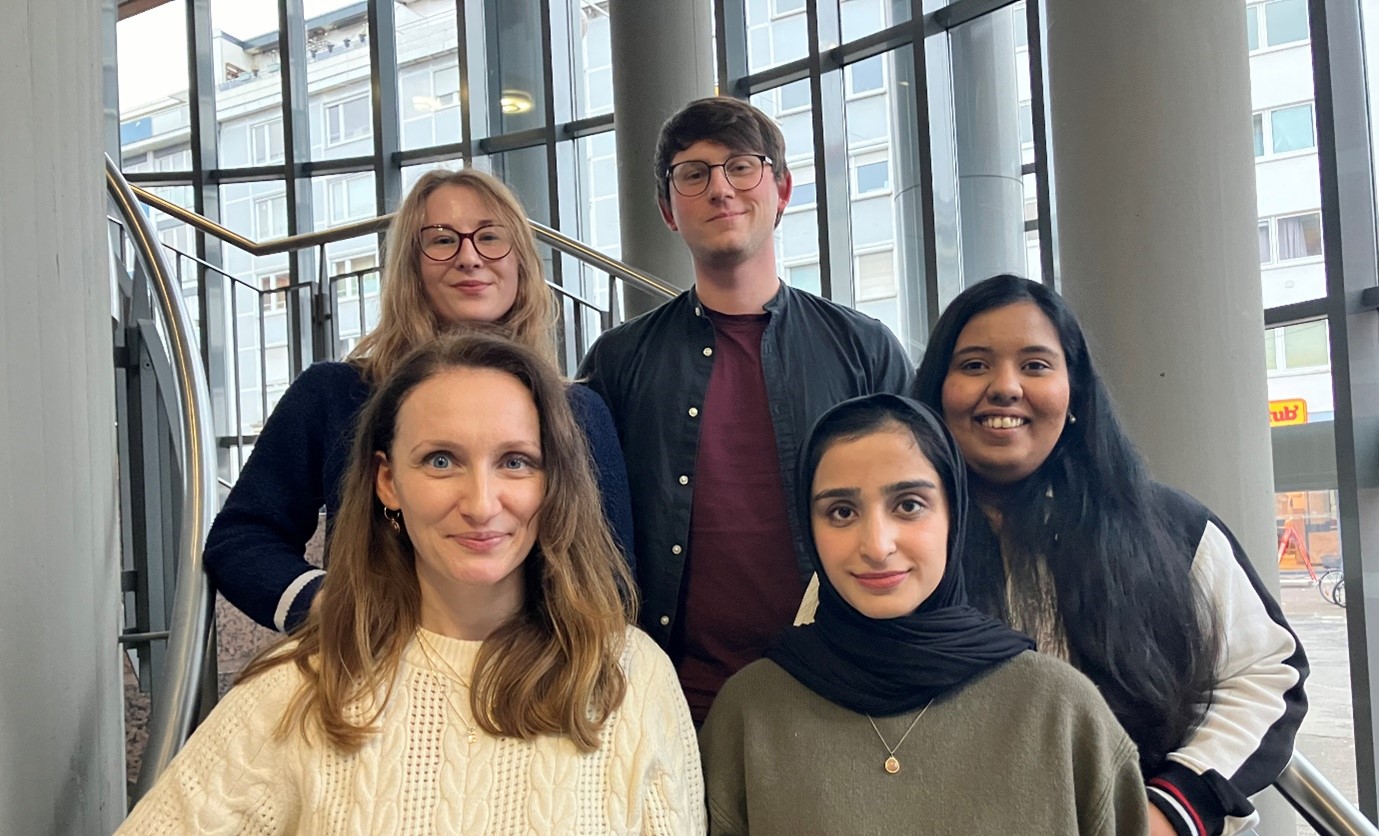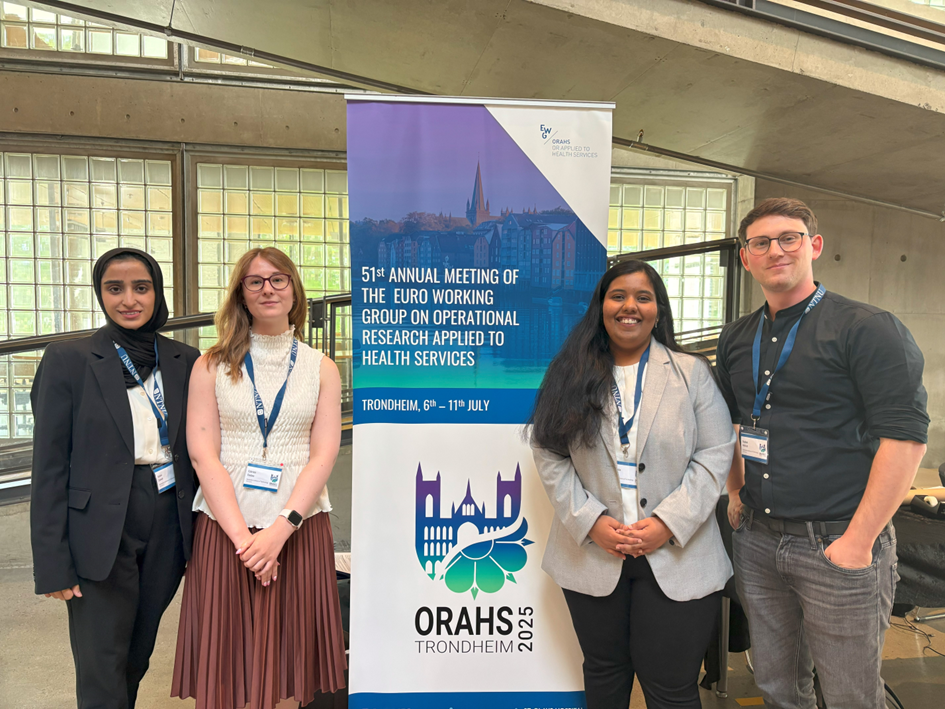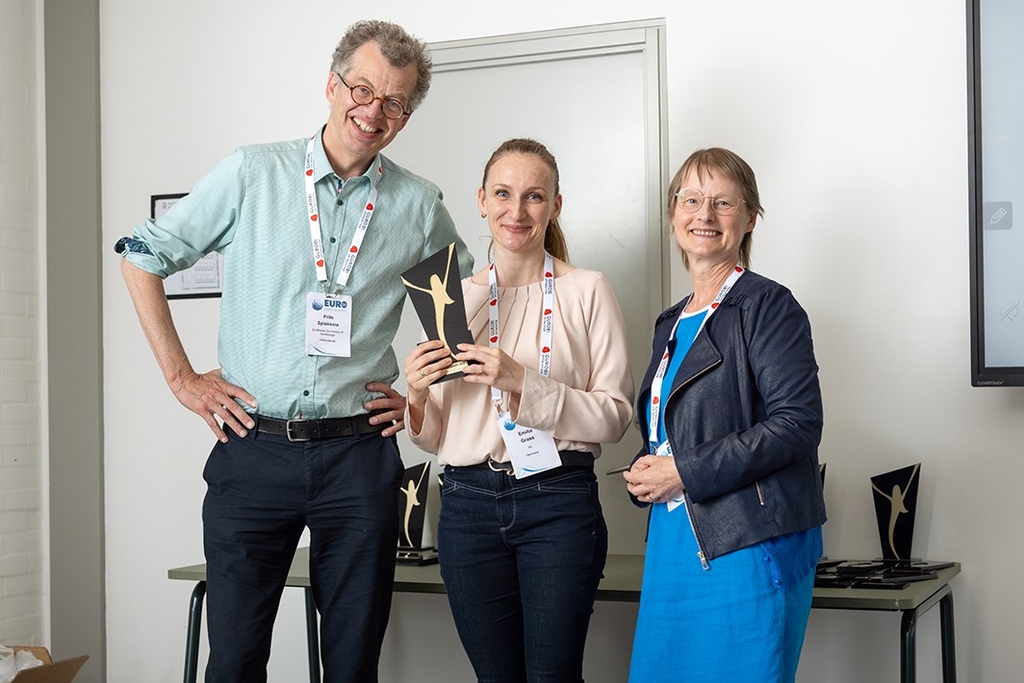Welcome to OCI
The Operations of Critical Infrastructures (OCI) group was founded in 2023 and is led by Jun.-Prof. Dr. Emilia Graß. We are interested in how to use techniques from operations research and business analytics to improve the security and resilience of critical infrastructures with a particular emphasis on healthcare. As we confront the realistic threat posed by climate change-induced disasters, urbanization, conflicts, and escalating cyberattacks against healthcare providers, our commitment lies in addressing these challenges through a holistic and interdisciplinary approach.


From July 6–11, 2025, our team joined more than 200 international experts at the 51st Annual Meeting of the EURO Working Group on Operational Research Applied to Health Services (ORAHS) in Trondheim, Norway.
ORAHS 2025 convened researchers, healthcare professionals, managers, students, and industry leaders to explore how systematic, quantitative methods can drive innovation across health services. Learn more about the conference at https://www.ntnu.edu/orahs2025.
We were proud to present our latest research on resilience and cybersecurity in healthcare, contributing to the vibrant discussions on improving efficiency, quality, and preparedness in health service delivery.
Congratulations to everyone who contributed to making our participation a success—and here’s to continuing our journey at the intersection of operations research and health care innovation!
We are thrilled to announce that our latest paper, "Assessing the Impact of Technology Partners on the Level of Cyberattack Damage in Hospitals," has been officially accepted for publication. This work offers a pioneering perspective on mitigating the risks of cybersecurity threats in healthcare through technology partnerships.
The study explores the potential of long-term collaborations between hospitals and medical technology manufacturers to enhance cybersecurity for medical devices. Using a discrete event simulation model, we evaluated the impact of cyberattacks on emergency department operations, including downtime costs, patient safety, and staff utilization. Our findings reveal that technology partnerships can significantly reduce the damage caused by cyber incidents.
This research underscores the critical role of collaborative approaches in safeguarding patient care and operational continuity in hospitals against cyberthreats.
We are delighted to announce that our paper, "A Stochastic Optimisation Model to Support Cybersecurity within the UK National Health Service," has been accepted for publication in the Journal of Operational Research Society. This work represents a significant step toward enhancing cybersecurity in healthcare.
The paper addresses the increasing threat of cyberattacks in healthcare, particularly within the NHS, and proposes a two-stage stochastic optimisation model to enhance cyber resilience. By integrating advanced risk measures like Conditional Value-at-Risk (CVaR), the model provides tailored strategies for selecting optimal countermeasures, ensuring minimal disruption to patient care even in worst-case scenarios. Numerical tests demonstrated the model’s robustness, achieving a 21% improvement over deterministic approaches and significantly reducing patient rejections in critical situations. This research highlights the importance of proactive, data-driven cybersecurity strategies in maintaining the integrity and availability of healthcare services.
Our paper titled "Characteristics of Crowd Disaster: Database Construction and Pattern Identification" has been accepted by the International Journal of Disaster Risk Reduction.
This study introduces a novel crowd disaster database, created with strict inclusion criteria and detailed characteristics, to better understand patterns of crowd movement under various conditions. Utilizing data from Factiva and other sources, the database includes 293 crowd disasters from 1989 to 2021. The cluster analysis algorithm K-Modes categorized the data into nine unique clusters, each representing a distinct type of crowd disaster. These findings enable event organizers to develop targeted crowd management strategies, reducing the likelihood of future crowd disasters.

Emilia Graß has been chosen as one of this year's Young Women for Operations Research (YW4OR) awarded by WISDOM (Women in Society: Doing Operational Research and Management Science).
WISDOM is a forum within the EURO (The Association of European Operational Research Societies) that aims to support, empower, and encourage the participation of all genders in Operations Research and Management Science (shortly OR). One of the goals of WISDOM is to promote championing, networking, and mentoring, particularly of women at the early stages of their careers in OR.
We are delighted that our paper, "A machine learning approach to deal with ambiguity in the humanitarian decision-making" has been successfully published in the prestigious journal Production and Operations Management. In response planning, humanitarian organizations face challenges due to ambiguity and uncertainty in disaster situations, compounded by missing elements and inconsistencies in available information from various sources. To address this, a novel methodological framework combining graph clustering and stochastic optimization is proposed to support decision-makers in analyzing and integrating divergent estimates from multiple data sources for efficient decision-making in humanitarian efforts, particularly in locating shelters for internally displaced people (IDP) in conflict zones like the Syrian civil war. By applying this methodology to integrate conflicting estimates from reliable sources, the study demonstrates improved satisfaction of shelter demand and more efficient integration of information, enabling decision-makers to better navigate ambiguity and make informed decisions in delivering humanitarian aid.
Emilia Graß is a member of the advisory board of the MEDI:CUS project which is a preliminary study on a cloud-based health data infrastructure to promote quality and digitization of healthcare in Baden-Württemberg (BW). The introduction of a "health cloud" brings together stakeholders in BW as a healthcare location and enables numerous potentials of digitalization to be leveraged. The MEDI:CUS project aims to bridge existing gaps in health data infrastructure by establishing a secure and research-compatible cloud-based system, facilitating data-driven medical progress. Integration into the emerging European health data space promises further benefits, including improved health outcomes, efficiency gains, and cost savings for both patients and healthcare providers.
The MEDI:CUS project is part of the third funding round of the "Forum for the Healthcare Location Baden-Württemberg," initiated by the state government, in which projects totalling 24.2 million euros were funded, primarily in and for the area of medical infrastructure.